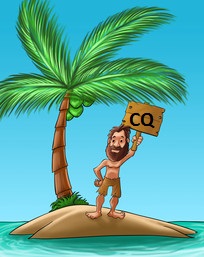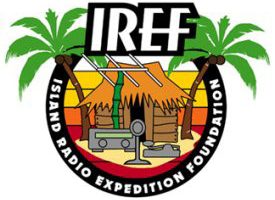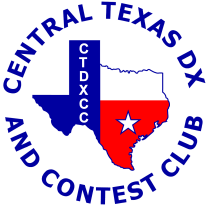2018 Results
1st Place – Cezar VE3LYC (15725 ponits)
2nd Place – Mike VE7ACN (13424 points)
3rd Place – Dave EI9FBB (10983 points)
2019 Leaderboard (coming soon)
For 2019 we will have a progressive leaderboard showing scores as DXpeditions are completed. IREF will be keeping an eye out for DXpeditions as they happen and will use Club Log data to update the scoreboard. Ideally DXpeditioners should notify us at vk5ce@yahoo.com.au to let us know about your IOTA activation to ensure your score is added to the progressive leaderboard.
As most IOTA participants know, the mission of IREF is to encourage and support IOTA focused expeditions. To this point we’ve only encouraged expeditions through financial support and in pursuit of that objective IREF has disbursed more than $80,000 to IOTA expeditioners since our founding in 1999. The IREF funding criteria has evolved over the years, but now focuses on IOTA islands that are confirmed by less than 15% of chasers. IREF has often been asked to sponsor expeditions to islands that aren’t as rare, however, because we don’t have unlimited funds, the budget can’t take much of that. On the recent VK9AR expedition the expedition team discussed potential ways to motivate and encourage expeditioners to get out more and activate the less rare islands that many new chasers still need. The IREF Board has taken these suggestions under consideration and believe that the time has come for IREF to find other, non-financial ways, to encourage IOTA expeditions to less rare destinations as well as to continue our current focus on financial support for rare IOTAs. IREF believes it is within the mission of IREF to encourage island expeditioning and if we can’t always do it with money, we should use other means.
Therefore IREF is pleased to announce that we will be sponsoring a new award, the IOTA Expeditioner of the Year award. The award will encourage expeditioners, through friendly competition, to activate islands that won’t necessarily meet IREF funding guidelines but are needed by many of the newer chasers. As you will see in the example below, expeditioners will get points based on the rarity of an island (the multiplier) and the number of unique QSO’s made during the expedition. It was decided to only count unique QSOs since IOTA only requires one contact. This rule would tend to equalize the competitive balance between an IOTA in a common DXCC country versus and IOTA in a rare DXCC country where band/mode QSO’s would inflate the total. Expedition teams will be required to divide the total unique QSO’s made during the expedition among team members, for the purposes of the award, which tends to level the playing field a bit. At the end of the year, the expeditioner with the most points wins. Let me reiterate, this award is Expeditioner of the Year, not Expedition of the Year. It is expected that the winner will need to execute numerous expeditions to win, as you will see from the examples below, just going on one expedition to a rare island will not be sufficient to score more points than an expeditioner who is active throughout the year, going to multiple IOTA’s.
IREF will be looking for sponsors for the awards and will give away as many plaques as we can get sponsored. The sponsor will have their name or organization on the plaque along with IREF Logo. Initial sponsorship amounts will be as follows:
$500 1st Place – Sponsored by IOTA Ltd
$400 2nd Place
$300 3rd Place Daily DX
These sponsorships will be granted on a first come, first served basis. All the sponsorship money will go into the IREF account for funding rare expeditions. The only expense will be the price of the trophy.

Percent Needed Unique QSO Multiplier
0 – 4.9% x 2
5 – 9.9% x 1.75
10-14.9% x 1.5
15-24.9% x 1.25
25-40.0% x 1.0
above 40% does not qualify
1. Rarity will be decided as follows
- The most current percent needed will be determined by the IREF LTD annual update during March of each year as follows
- The rarity factor determined from the above referenced list will be in effect for the entire year, regardless of how many expeditions occur from a particular IOTA during the year
- Any standings published in January and February will be noted as estimated points and then be revised when the March numbers come out
2. IOTA expeditions teams will divide the number of total expedition unique QSO’s by the number of operators to determine each members allocation of QSO’s for the purposes of the award.
- An expedition member is defined as a licensed radio operator on an expedition, it does not matter if the member makes any contacts.
- There will not be any other proration of contacts under any circumstance
3. Contests
- IOTA Contest QSO’s will count as any other IOTA expedition operation
- Operations from islands during a contest, other than the IOTA contest, must be expedition style operations, i.e. portable antenna’s, etc.
- Any expedition to an IOTA island that operates in a contest, other than IOTA, must make a minimum of 500 QSO’s outside of the contest for the operation to count for the award
- Base station, non-IOTA contest operations from an IOTA island will not count for the award.
4. Logs
- Logs must be uploaded to Club Log within 30 days of the expedition
- IOTA QSO matching can be delayed 6 months
- Club Log has a tool for calculating unique QSOs and this will be the official number for the award calculation
- There shall be no punitive action taken against chasers for dupes. It is understood that duping an expedition to be certain of a good QSO is a common practice. Expeditions my choose methods to limit dupes through pre-expedition announcements, on-air instruction, on-line logs etc., but there should be no delay of QSLing or other penalty because of duplicate contacts. Such punitive practices will result in disqualification of the expedition
- IREF believes that a QSO should be confirmed via the same method received, that is, direct via direct, buro via buro, etc….
5. Contest Period
- The contest period will run from January 1 – December 31, local time.
- Should an expedition span two contest periods, starting in December and ending in January, it will be considered two expeditions, counting separately in the respective year of the QSO’s. The percent needed factor is the percent in effect at the start of the expedition.
6. Islands confirmed by more than 40% will not qualify for points towards “Expeditioner of the Year” award.
7. The IREF Committee will adjust the rules for the award as needed. However, changes will only take effect after Jan 1stof the following year.
8. If a expeditioner goes to the same IOTA more than once in a year only the operation with the highest unique QSO total will count towards the award.
Example:
VK9AR makes 5000 unique QSO’s from OC-216 which was confirmed by only 1.8%
5000 X 2 = 10,000 points/ 3 operators = 3,333 points per operator will count toward the award
AD5A goes to a 13% confirmed island and makes 3,000 unique QSO’s
3,000 X 1.5 = 4,500 points for AD5A
AB5EB goes to a 17% confirmed island and makes 2,000 unique QSO’s and a 26% need island and makes 1,100 unique QSO’s
2,000 X 1.25 = 2,500 points
1,000 X 1.00 = 1,000 points
Total 3,500 points
As you can see the individual operator can be competitive with an expedition team activating a rare one if they do a good job. The less rare islands might require multiple activations to keep up, but that’s the point.



